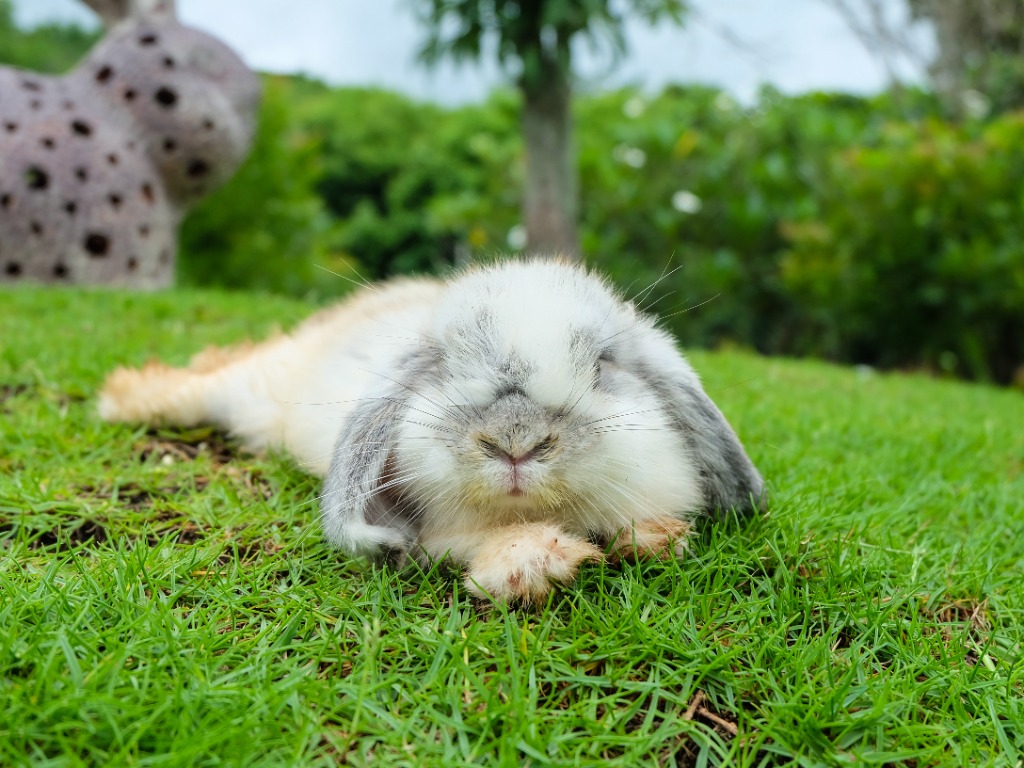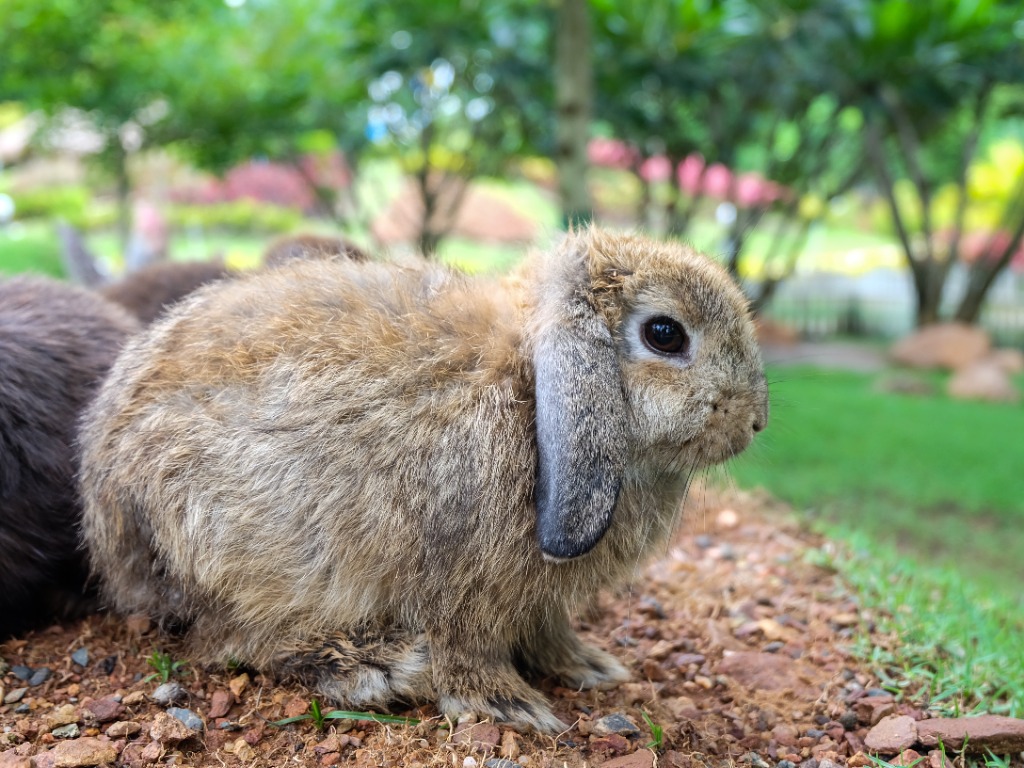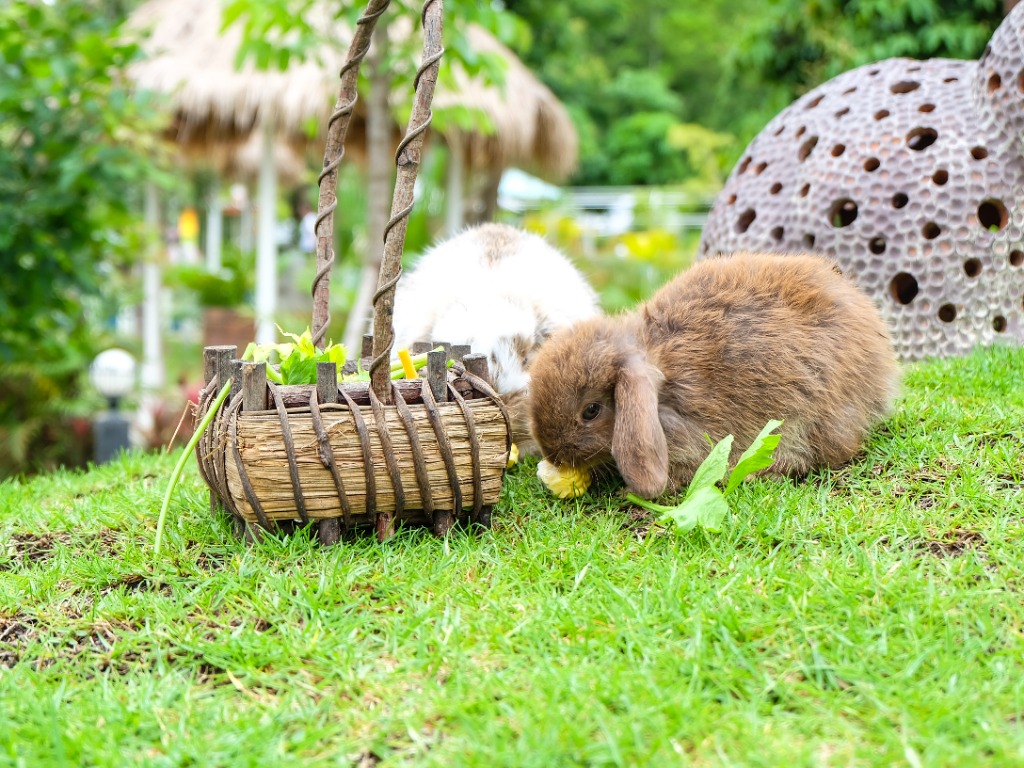Are Holland Lops High Maintenance? A Comprehensive Guide
Holland Lop rabbits are one of the most popular breeds of rabbits worldwide. They are known for their cute looks and affectionate personalities. However, before getting a Holland Lop, many wonder if they are high-maintenance pets.

Holland Lops are not considered high-maintenance pets. They have a low-maintenance coat that does not require much grooming. Brushing their fur once a week or every two weeks is enough to keep their coat healthy and shiny. Additionally, they are not prone to many health problems and only require basic grooming in most circumstances.
That being said, there are a few things to remember when caring for a Holland Lop. They need a balanced diet with hay, pellets, and fresh vegetables. They also need plenty of exercise and socialization to stay healthy and happy. Overall, with proper care and attention, Holland Lops can make wonderful pets that are not high maintenance.
General Care
Holland Lops are a relatively low-maintenance rabbit breed, but they still require proper care to keep them healthy and happy. Here are some general guidelines for taking care of a Holland Lop.
Housing
Holland Lops should be kept in a cage at least 1 square foot per pound of a completely developed rabbit. The cage should be placed in a quiet, well-ventilated area of the house, away from direct sunlight and drafts. The sides of the cage should be made of strong wire to prevent the rabbit from chewing through it, but it should never have a wire bottom. Instead, provide soft and comfy bedding for the rabbit to hop on.
Diet
Holland Lops need a diet high in fiber and low in fat. They should be fed hay, fresh vegetables, and a small amount of pellets every day. Water should be available at all times, either through a sipper bottle or a ceramic dish. Monitoring their food intake and ensuring they are not overeating or becoming overweight is important.
Grooming
Holland Lops need regular grooming to keep their fur clean and free of mats. They should be brushed at least once a week, and more frequently during shedding season. You may even do it more when they are in the molting period to prevent wool blocks, where the rabbits may ingest some fur. This is because they are usually self-grooming. When the fur accumulates, their digestive system may be blocked. Their nails should be trimmed regularly to prevent them from getting too long and causing discomfort.
Health Concerns
Holland Lops are generally healthy rabbits and require minimum care to thrive. However, like all pets, they can face some health concerns that require attention to ensure their well-being. This section will discuss some of the most common health concerns that Holland Lops may face.
Dental Health
Holland Lops have teeth that grow continuously throughout their lives. If their teeth are not worn down properly, they can develop dental problems. Symptoms of dental problems include drooling, loss of appetite, weight loss, and difficulty eating. To prevent dental problems, Holland Lops should have access to hay and chew toys to wear down their teeth. Regular veterinary check-ups can also help detect and treat dental problems early.
Respiratory Issues

Holland Lops can be susceptible to respiratory issues, especially if kept in damp or dirty environments. Symptoms of respiratory issues include sneezing, coughing, and discharge from the nose or eyes. Holland Lops should be kept in a clean and dry environment to prevent respiratory issues. A Holland Lop should be taken to a veterinarian for treatment if it shows signs of respiratory issues.
Parasites
Holland Lops can be affected by various parasites, including fleas, ticks, ear mites, and fur mites. These parasites can cause discomfort, itching, and skin irritation. Holland Lops should be kept in a clean environment to prevent parasites and regularly checked for signs of infestation. If a Holland Lop is infested with parasites, it should be treated with appropriate medication as a veterinarian recommends.
Diseases
Various diseases can affect Holland Lops, including enteritis, bloat, and gut stasis. These diseases can be caused by poor hygiene, farming, and management. Symptoms of these diseases include loss of appetite, bloating, and diarrhea. Holland Lops should be kept in a clean and dry environment to prevent these diseases and provided with a proper diet. A Holland Lop should be taken to a veterinarian for treatment if it shows signs of these diseases.
Behavioral Considerations
Personality Traits
Holland Lop rabbits are known for their pleasing temperament. They are gentle, docile, and easy to handle, making them great pets for children and adults. They are also playful and curious, which can entertain their owners. However, just like any other pet, they can have unique personalities and may require different levels of attention and care.
Training
Holland Lop rabbits are intelligent creatures that can be trained to do simple tricks or follow basic commands. However, training requires patience and consistency. Positive reinforcement techniques, such as treats and praise, can teach rabbits new behaviors. It is important to note that rabbits may not respond well to punishment or negative reinforcement.
Socialization
Holland Lop rabbits are social animals and enjoy companionship. They can be kept alone but are happier when they have a companion. If you are planning to keep more than one rabbit, it is essential to introduce them gradually and carefully. Introducing rabbits too quickly can result in fights and injuries. It is also important to supervise their interactions to ensure they get along well.
In conclusion, Holland Lop rabbits are generally not high-maintenance pets. They have a pleasing temperament, can be trained, and enjoy companionship. However, providing them with proper care and attention is important to ensure they stay healthy and happy.
Costs
When considering getting a Holland Lop rabbit, it’s important to factor in the costs of owning and caring for one. There are both upfront costs and ongoing expenses to consider.
Upfront Costs
The upfront costs of getting a Holland Lop rabbit can vary depending on where you get them from and what supplies you already have. Here are some of the costs to consider:
- Purchase Price: A Holland Lop rabbit can range from 20 to 400 or more, depending on the breeder, pedigree, age, and color.
- Housing: A suitable cage or hutch can cost anywhere from 50 to 200 or more, depending on the size and quality.
- Supplies: You’ll need to purchase food dishes, water bottles, bedding, litter boxes, and toys, which can add up to around $50 or more.
Ongoing Expenses

Once you have your Holland Lop rabbit, ongoing expenses must be considered. These include:
- Food: A healthy diet for a Holland Lop rabbit includes hay, pellets, and fresh vegetables. This can cost around $20 per month.
- Veterinary Care: Regular check-ups and vaccinations are important to keep your rabbit healthy. This can cost around $100 per year.
- Grooming: Holland Lop rabbits require regular grooming to keep their fur clean and prevent matting. This can be done at home or by a professional groomer, costing around $50 annually.
While Holland Lop rabbits are not necessarily high-maintenance pets, they require some financial investment to properly care for them. It’s important to consider these costs before bringing one into your home.